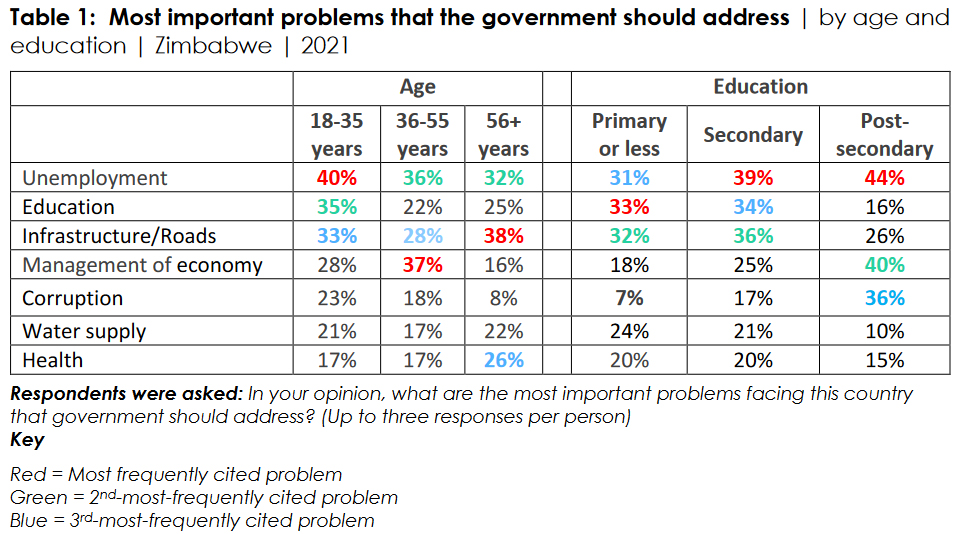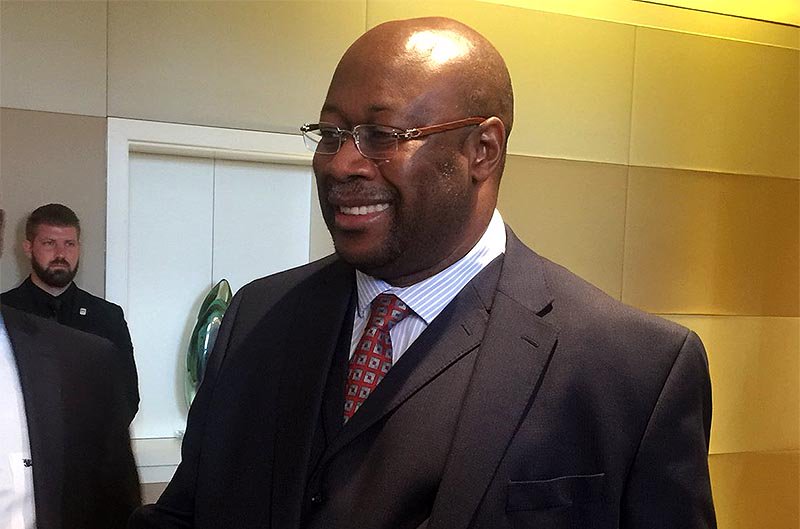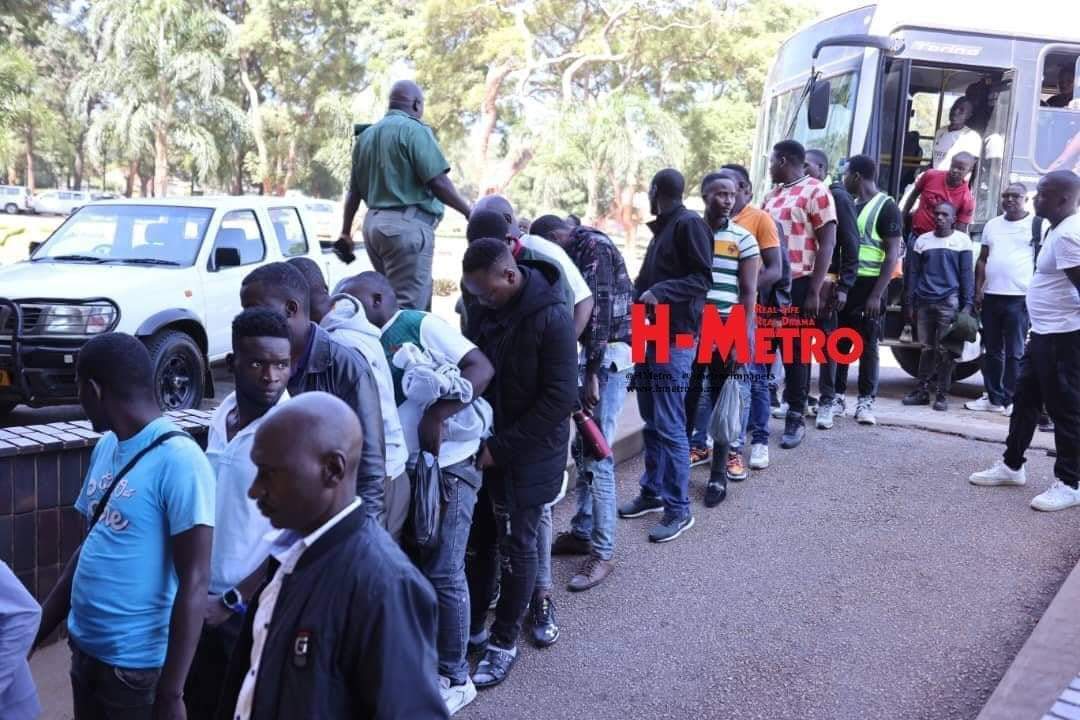HARARE – Unemployment has been identified as the number one “most important problem” Zimbabweans want addressed, a new poll shows.
Infrastructure/roads, education, management of the economy, and water supply follow as top priorities on citizens’ agenda, according to the Afrobarometer survey.
While rankings vary somewhat by respondents’ location, gender, generation, and education levels, the major concerns are fairly consistent across demographic groups.
Unemployment is Zimbabweans’ biggest concern, cited by 38 percent of respondents as one of their top three priorities they want the government to address.
Infrastructure/roads (33%), education (31%), management of the economy (26%), and water supply (20%) round out the top five.
A lack of jobs is more widely seen as a priority in the cities (45%) than in rural areas (33%), as is management of the economy (36% vs. 19%).
Rural residents are more likely than their urban counterparts to prioritise health (25% vs. 11%) and water supply (23% vs. 16%).
Men are somewhat more likely than women to rank unemployment and
infrastructure/roads among the most important problems that the government should address. More women than men cite food shortage as a top concern.
Among young people, unemployment (40%) and education (35%) top the list of priorities. Among respondents with primary schooling or less, education (33%) ranks as the number one concern.
Formal unemployment in Zimbabwe is estimated to be over 85 percent.
When President Emmerson Mnangagwa took over following a military coup in 2017, he told Zimbabweans: “We want to grow our economy, we want peace, we want jobs, jobs, jobs.” Many Zimbabweans however feel they are worse off now than they were when the late former leader Robert Mugabe was deposed in November 2017.
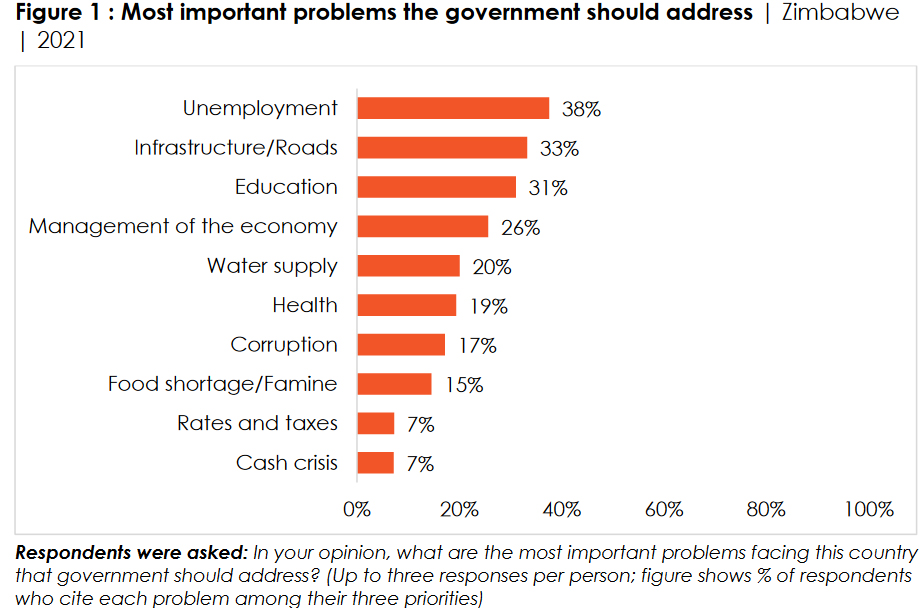
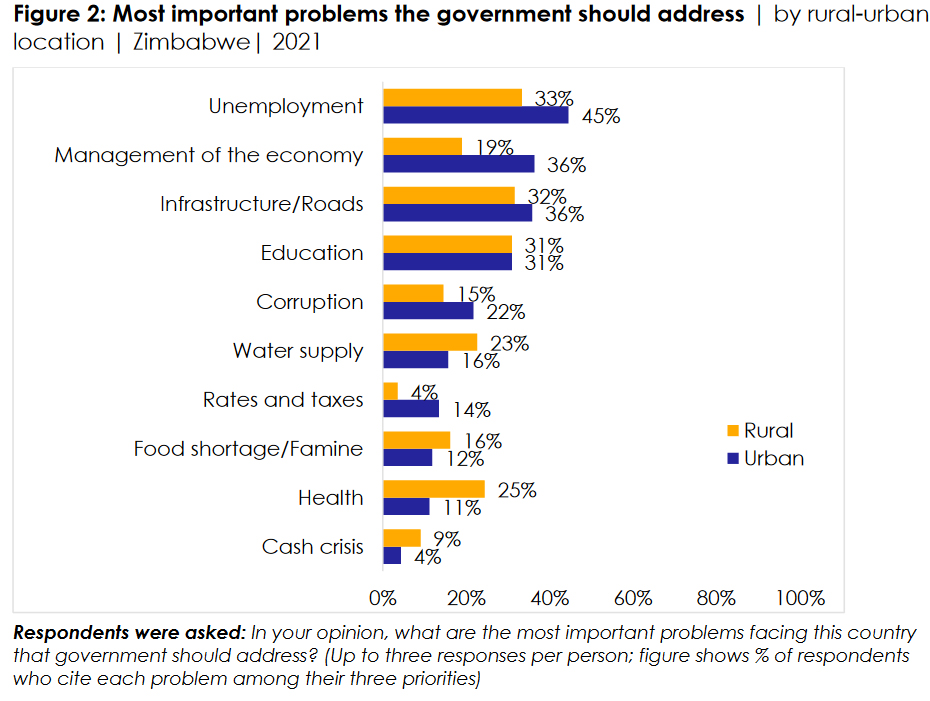
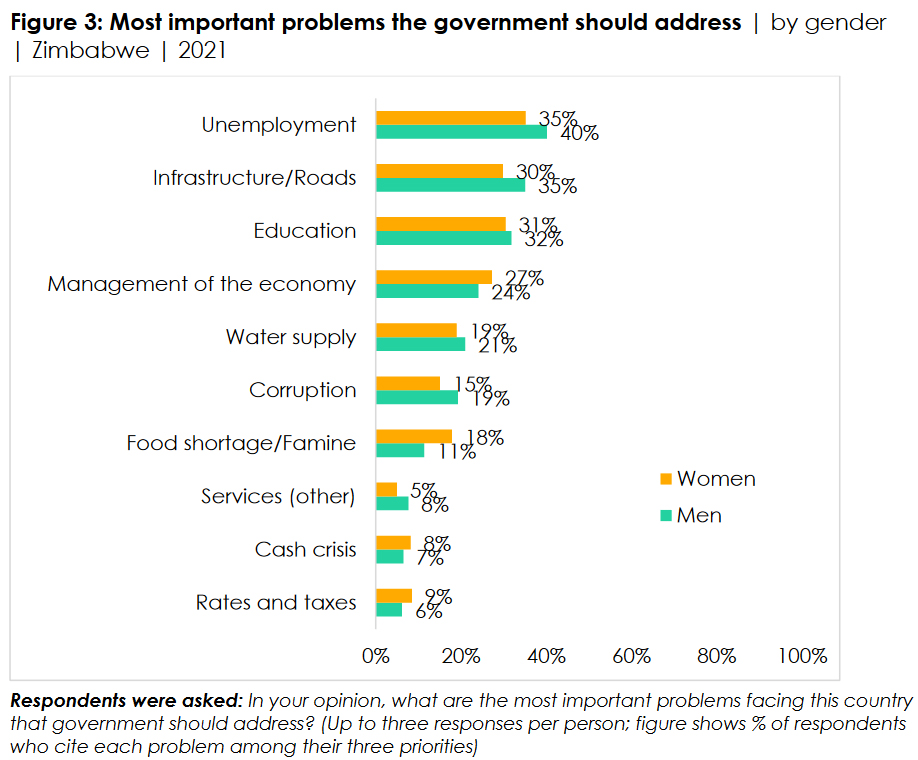
The Afrobarometer team in Zimbabwe, led by the Mass Public Opinion Institute (MPOI), interviewed 1,200 adult citizens in April 2021. A sample of this size yields country-level results with a margin of error of +/-3 percentage points at a 95 percent confidence level.
The last standard Afrobarometer survey was conducted in Zimbabwe in 2017.
